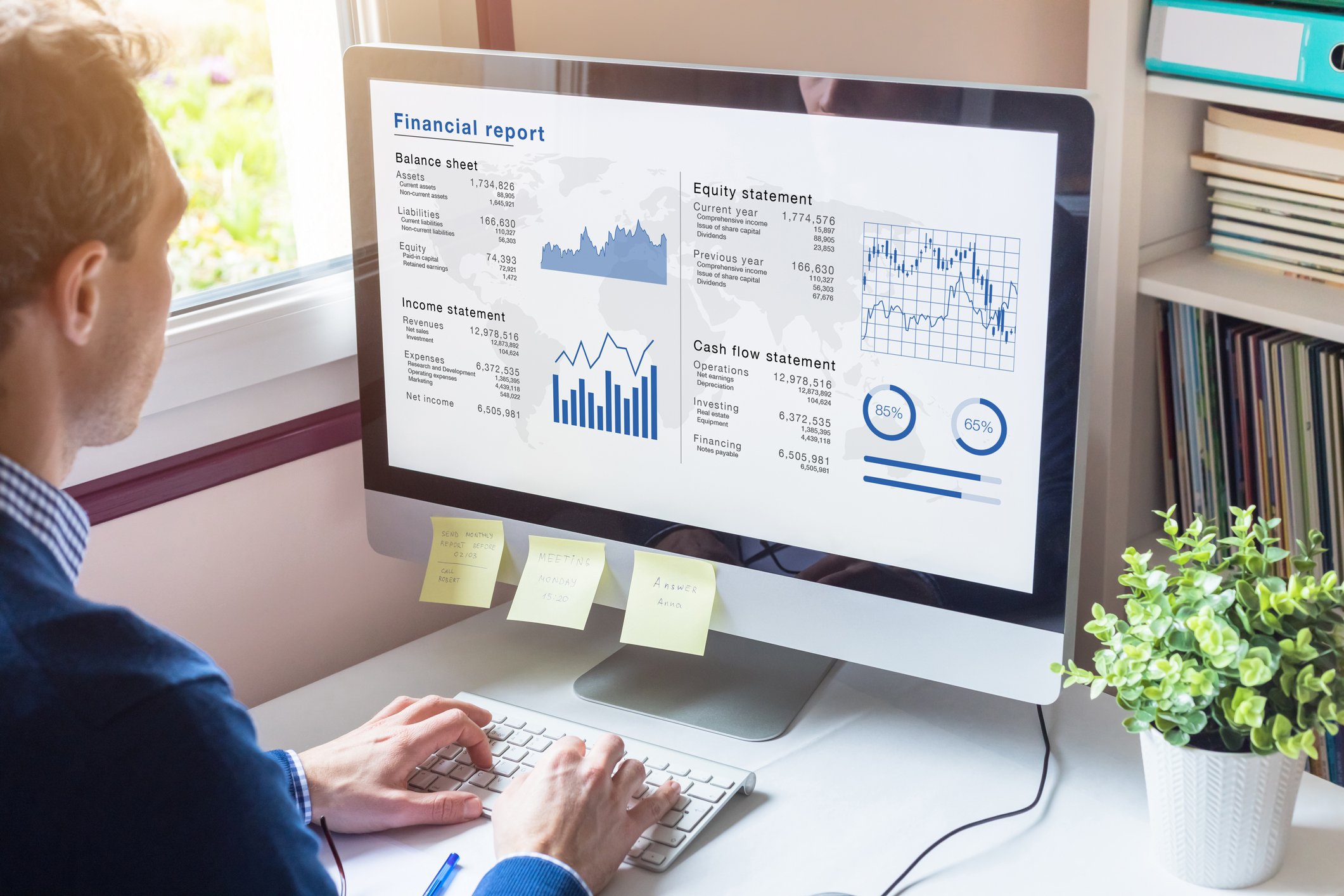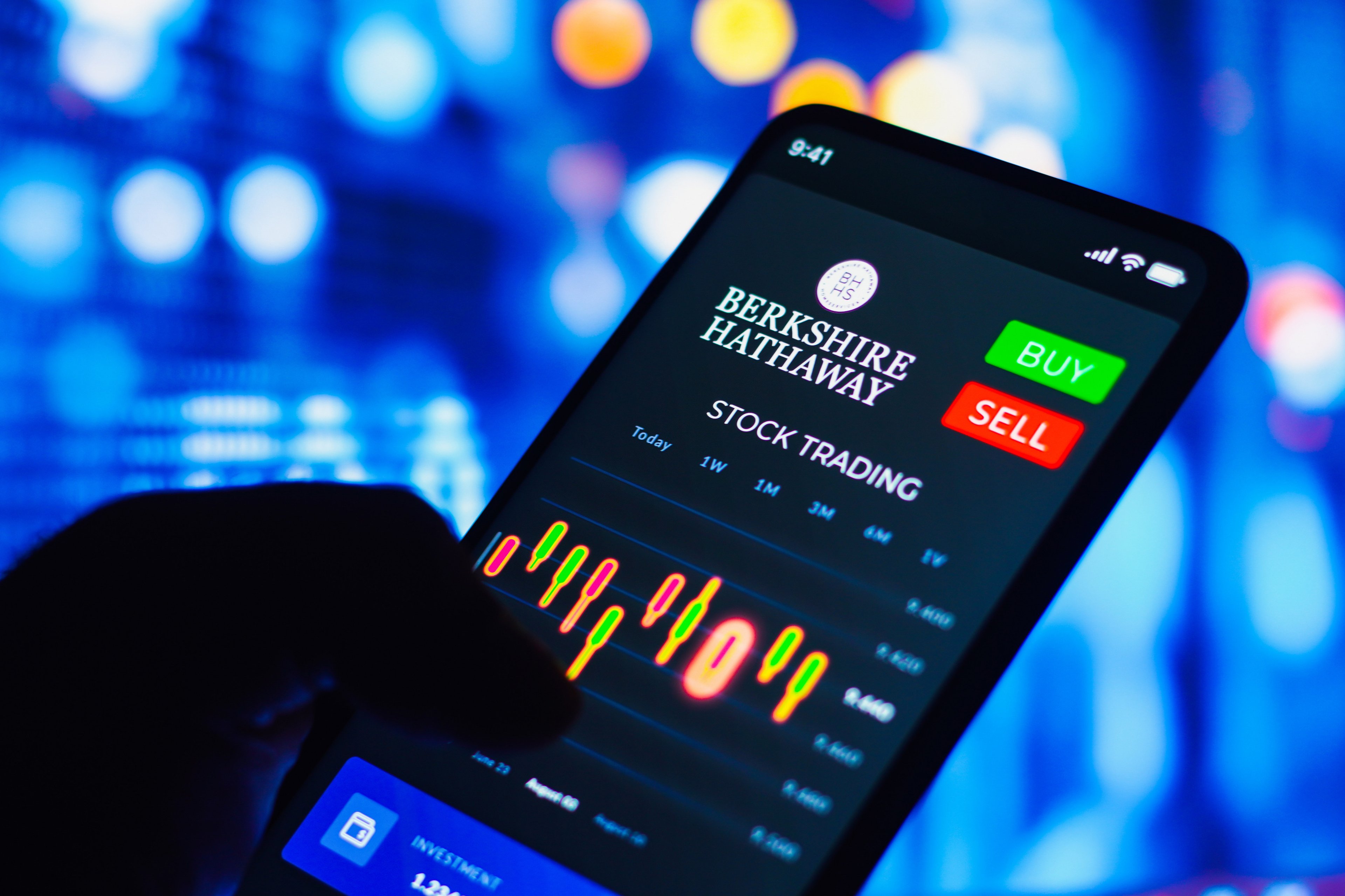At any given time, I own about 40 different stocks in my portfolio. They have a wide spectrum of risk levels, ranging from large blue chip stocks to small, relatively speculative positions.
To be sure, most of my portfolio is designed so I don't have to be too worried during a stock market sell-off. Of my 10 largest positions, I'm quite confident that their businesses, not necessarily their stock prices, would be absolutely fine if the market dropped, or even if the economy fell into a deep recession.
Having said that, there is one that is a clear standout as a great stock to own in a market sell-off, and that's Berkshire Hathaway (BRK.A +1.19%)(BRK.B +0.80%). Not only is Berkshire's business designed to weather even the worst economic storm, but the company is set up to emerge from any market sell-off, correction, or even full-blown crash in even better shape than it went in.
Berkshire's business should be fine no matter what happens
There are three main components to Berkshire's business – its operating subsidiaries, its cash, and its massive stock portfolio. All three are similar in terms of market value, and all three make Berkshire a great investment during a sell-off for different reasons. So, let's take them one at a time.

NYSE: BRK.B
Key Data Points
First, Berkshire's operating businesses are generally designed to perform just fine no matter what the stock market or the economy is doing. As of this writing, there are 67 different subsidiaries of Berkshire, and while some of these are certainly vulnerable to recession or falling consumer confidence, most are businesses that sell things or provide services that people need. Just to name a few examples, Geico's customers will likely keep paying their auto insurance in challenging times, Berkshire Hathaway Energy's power bills will still be paid if people want electricity, and people will still take their cars to Pilot Travel Centers to fill up.
Tremendous flexibility to take advantage
Next, and perhaps the most interesting part, is Berkshire's cash stockpile. After some major stock sales in the second quarter, Berkshire is now sitting on a staggering $277 billion in cash and short-term investments. And this is significant for two reasons.
First, this gives Berkshire plenty of reserves in case anything goes wrong with one or more of its subsidiaries. If Geico has higher-than-expected losses, for example, Berkshire can cover it.
Second, this gives the company tremendous potential to take advantage of market sell-offs by deploying capital into acquisitions or stocks at lower valuations. Think of it this way: If the stock market falls by 10%, 20%, or more, having $277 billion in cash in the bank is a good position to be in as it gives tremendous ability to buy beaten-down stocks that will someday surge. Plus, the cash is mostly in the form of short-term Treasury securities that yield about 5%, so in the meantime, Berkshire is collecting about $14 billion in annual interest income.
The stock portfolio can help create a bargain
Last but not least, Berkshire's stock portfolio was recently trimmed down a little, but still has a market value of more than $300 billion.
Not only is this an impressive collection of investments -- most of which were hand-picked by Buffett himself -- but Berkshire's stock portfolio can also help create BRK buying opportunities for long-term investors.
In other words, if Berkshire's stock holdings decline, the stock price of Berkshire itself will typically fall, making it more attractive to investors.
To sum it up, Berkshire's businesses will be just fine in a market sell-off or any period of economic uncertainty. Its cash gives it the flexibility to endure whatever the economy throws its way and also gives CEO Warren Buffett and his team the ability to go on a shopping spree when stocks are cheap. And the company's stock portfolio can contribute to Berkshire's stock itself becoming a bargain during a sell-off. So, not only is Berkshire the stock I worry about least during a sell-off, it's the one I would be most inclined to buy even more of.






